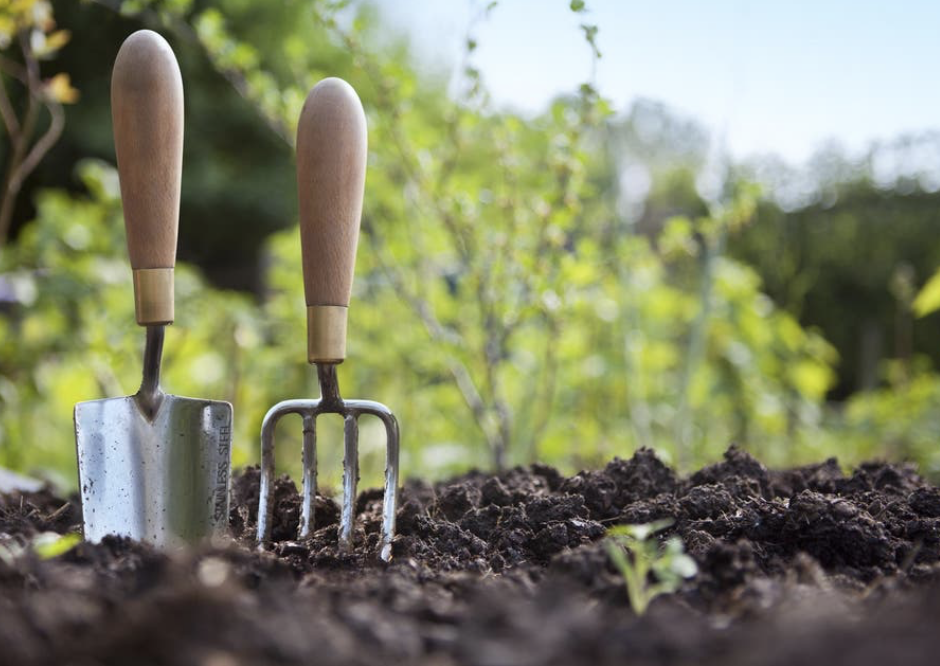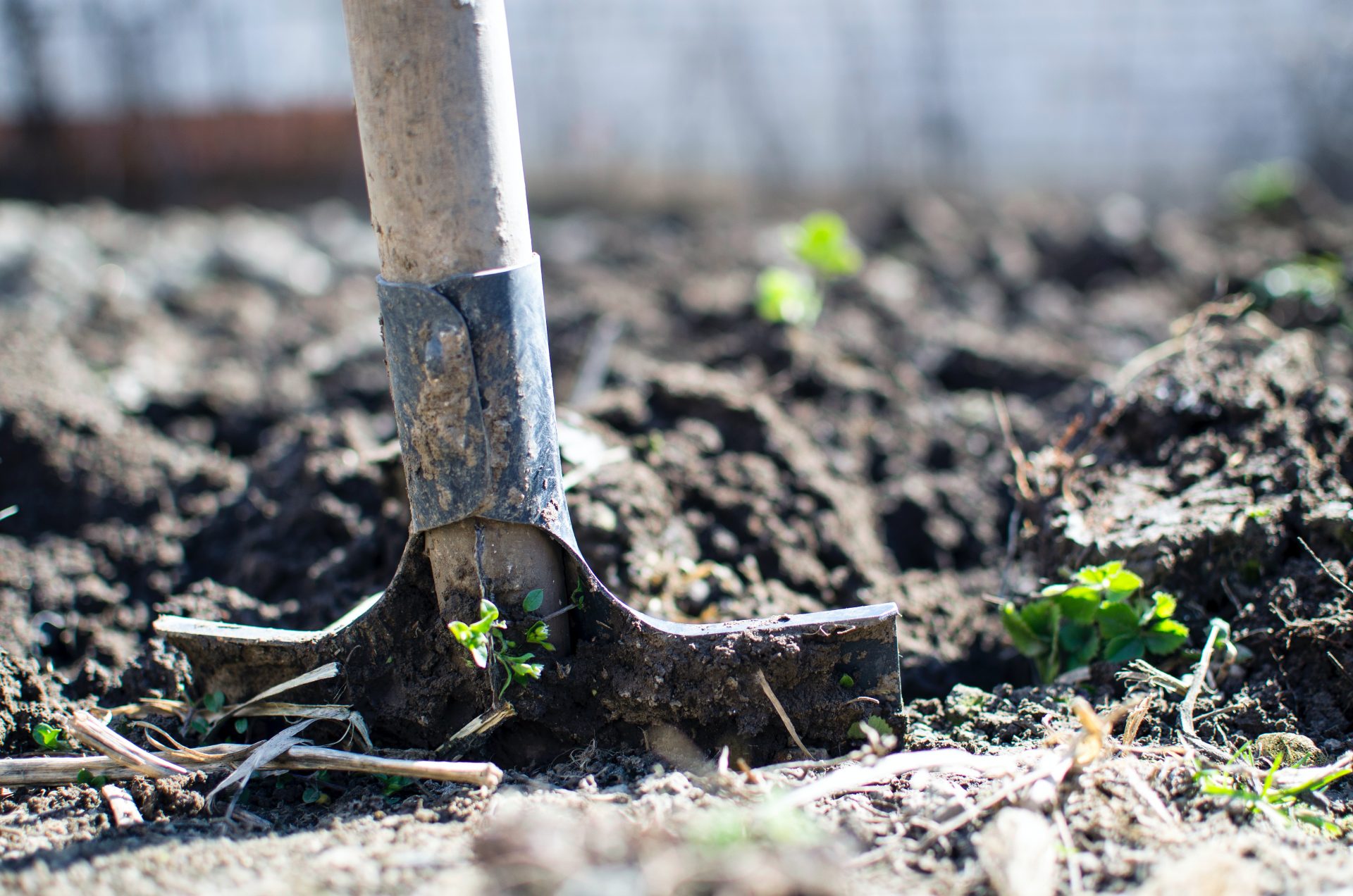Have you ever tried composting? If not it’s a highly effective way to recycle any green waste from your kitchen. Not only does it save you room in your bins but also provides valuable nutrients to your garden, composted materials feeds your soil with lots of beneficial microorganisms that break down into the soil over time, providing constant food to your plants.
Compost also enriches your soil allowing for further growth of plants, as well as helping reduce plant diseases, and improves your soil drainage.
Composting encourages the production of beneficial bacteria and fungi that break down organic matter to create humus, a rich nutrient-filled material. Benefits of composting reach further than just your garden and far outweigh any negatives, if you haven’t already tried composting I’d recommend you give it a go.
Crop diversity in your garden is essential to keep soil healthy, a large variety of plants require different nutrients and attract different types of pests.
That’s why we at Sydney gardeners remember to rotate their food crops each year, so that plants (and family members) don’t grow in the same place more than once every three years. This stops one type of plant from stripping all the nutrients from the soil.
Livestock manures can be valuable additions to soil, their nutrients are readily available to soil organisms. Manures are perfect for your garden as they are already decomposed and make a great contribution to your garden and add value.
Although manures are always considered a positive for a garden, you should always apply manures with care, it’s unlikely pathogens will be found in manures from local farms. However, you should be aware of where your manure is coming from.
When harvesting crops after applying manure you should allow three months between application and harvest of root crops or leafy vegetables such as lettuce and spinach to guard against contamination. Taller crops are not prone to contamination.
Manures and the benefit they have to your garden
Earthworms help break down organic matter into nutrients and minerals that plants can use. The organic matter they recycle is an excellent source of food for your plants and a natural fertiliser for your garden.
Earthworms also greatly benefit your garden by moving around, creating tunnels and aerating the soil, this makes it easier for your plants to grow roots and access water. There are countless benefits of having earthworms.
Not only do the worm castings feed plant roots, they carry a huge load of beneficial microbes that boost the soil organism community.
There are many ways to manage weeds, some more natural than others, whilst spraying weeds with herbicide is effective, its long-term impact on your garden and health of your soil is something many experts recommend against due to the active ingredient glisophate.
With ongoing investigations into its effect of people’s health it’s something I would recommend steering clear of. Mulch is an effective way to manage weeds and increase your garden’s visual appeal. Mulch helps maintain moisture in the soil creating a perfect growing environment for well established plants.
Additionally prevent new weeds from growing as they are unable to penetrate the layer of mulch to reach the sun. Mulching a garden is a rewarding job and one if done right can be paying you back for months.
Over several seasons of soil building, a living, organic soil recycles and retains most nutrients. Reducing any needs for added fertiliser. When starting a new garden, ensure the soil has proper nutrients and for the season ahead. Soil tests can determine what chemicals your garden lacks and fertilisers that are needed to rebalance your soil.
To tell when your soils are ready to work in the spring, take a handful and squeeze. If water comes out, hold off for a week or so. Soils that form a sturdy ball when molded or clay soils that press into a shiny ribbon also need to dry more.


Cover crops are green manures that gardeners turn into the soil to provide organic nutrients. As they attract beneficial soil organisms, and act as an overwintering mulch.

One great tip to maintain good soil quality is to never walk in your garden beds. By treading on soft soil, it compacts it, which destroys tilth as well as organic soil organisms. One way to prevent this from occurring is by having dedicated garden beds for your produce, this is something I have always done and by keeping them narrow have managed to be able to attend to all my plants without treading on others.
Beds created in this way can improve each year rather than starting each season in a compacted state from last year’s walkways in addition to keeping soil in the garden beds loose, permanent beds also save time and money. Another benefit of garden beds provide is the lower costs of maintaining your garden.
Rather than applying costly amendments over a broad area, you need only apply them to permanent bed areas, skipping the pathways. Irrigation installation is easier, too, since the beds are permanent fixtures.
As our garden wakes up in spring, from its winters sleep so do the weeds. Before planting, it’s important to get them under control. Weeds compete with garden plants, and from a soil perspective, they steal organic food away from the living soil that leaves your plants deprived. For starters, Autumn mulching gives you the upper hand on spring weeds.
As it provides a cover that the weeds need to grow through to reach the light. Pull weeds that do emerge in the spring early and quickly, when they are small and easy to manage. Once weeds are under control your garden will be ready for the exciting growing season.

Operator of Sydney Gardeners

Garden maintenance is a top quality services provided throughout Sydney.

NDIS gardening service is a specialized offering tailored for individuals with disabilities.

Sydney lawn mowing is a top of the range high quality service

We love everything trees, safety and efficiencey is priority.

Nothing better than a good contract. Stay organised with us.